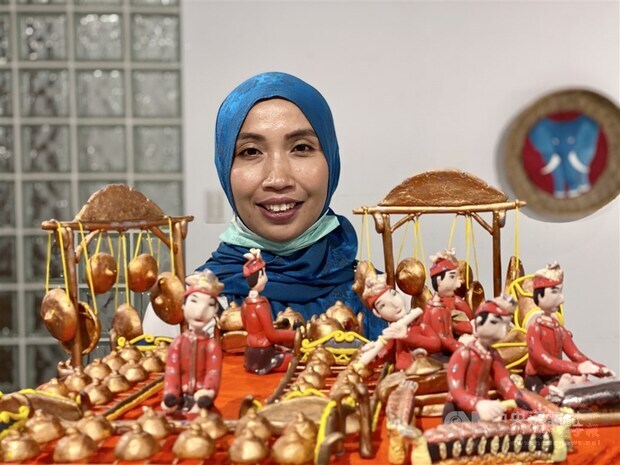
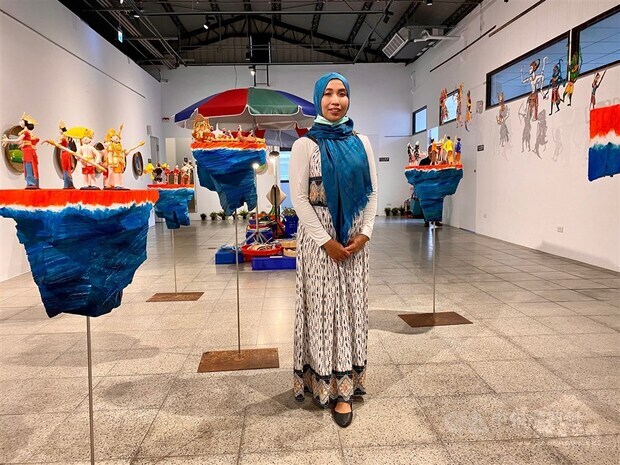
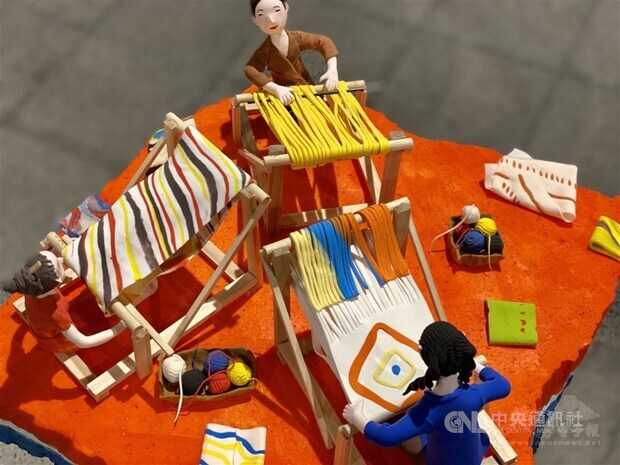
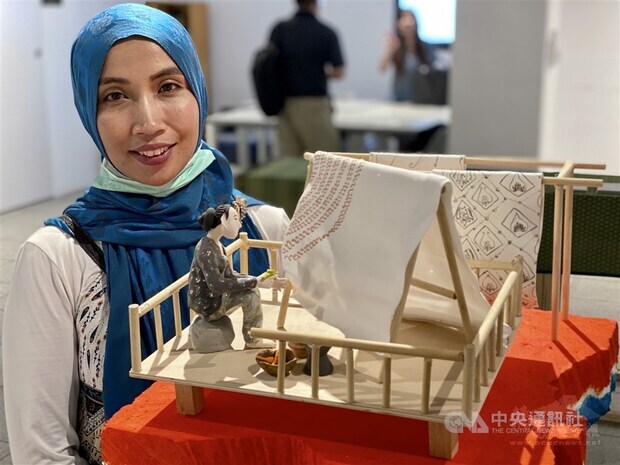
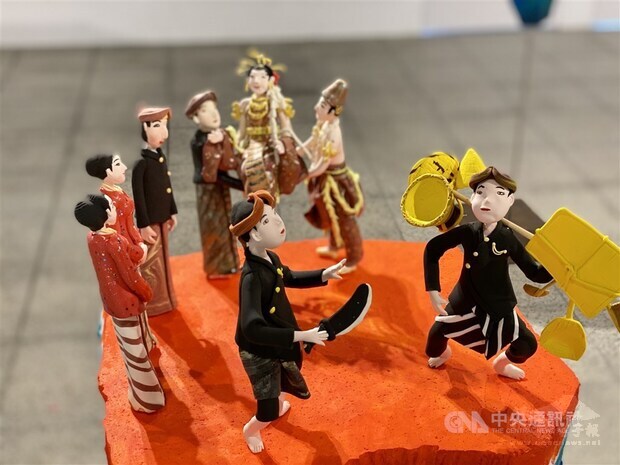
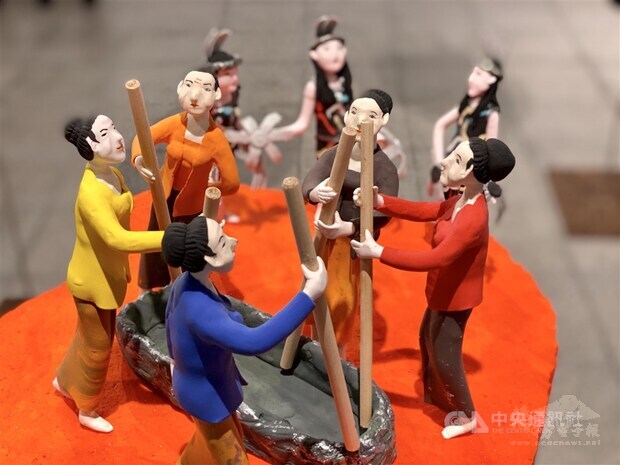
By William Yen, CNA staff reporter
Indonesian Fidati (Pindy Windy) is not your average migrant worker.
For starters, she is one of the first migrant workers to receive an entrepreneur visa and one of the few to meet with Taiwan President Tsai Ing-wen.
Fidati is also a dough figurine sculptor who has held numerous exhibitions of her work, introducing Indonesian culture to Taiwanese people.
The eldest of her siblings, the 35-year-old first came to Taiwan as a caregiver in 2006, working for her first employer in Yilan before returning to Indonesia after her three-year contract came to an end. While in Indonesia, she got married, had two girls but later got divorced after she said her ex-husband spent all of her money.
She then returned to Taiwan to work as a caregiver in Taichung, where she learned the traditional Chinese craft of sculpting dough figurines.
She met her teacher, Taiwanese dough sculptor Young Ching-jen, in a Taichung hospital in 2013 because his mother was in the bed next to the elderly woman Fidati was looking after.
Young encouraged Fidati and other caregivers in the hospital to make figurines because he thought that if they could learn an extra skill, then perhaps they could support themselves when they returned to their countries of origin.
"These migrant caregivers work very hard, often working long hours, so having an extra skill or hobby helps them fight homesickness," Young said.
Fidati would work on her craft by making dough figurines at night with other migrant caregivers in the hospital or when her patient was resting.
After six months of training under Young, she began to make a name for herself within the Indonesian community by making dough figurines of her friends as decorations for various events, such as weddings.
By the time Fidati was employed by her third employer, she had already generated a buzz in the Indonesian community by organizing cultural events and showcasing her works at various exhibitions.
Her third employer also supported her hobby and allowed her to take time off work when she needed to, something that was very difficult with her previous employers.
Her latest exhibition, held Sept. 5-Oct. 11 at Taoyuan New Immigrants Cultural Hall, showcases six of her works, presenting dough figurines participating in daily activities in Indonesia, ranging from a woman painting batik to a group of musicians playing in a traditional percussion ensemble.
One of the artworks of which she is particularly proud is a work made in 2016, titled "Gamelan," depicting seven musicians wearing traditional Indonesian attire playing the traditional ensemble music of the Javanese and Balinese peoples.
"Many people know about the gamelan and can instantly relate it to Indonesian culture," Fidati told CNA.
Another work she particularly likes is one she made this year titled "Batik," which shows a woman applying the Indonesian technique of wax-resist dyeing to white cloth.
The reason why she makes cultural works and holds exhibitions is because she hopes more and more people in Taiwan can become aware of Indonesia and its culture.
"When migrant workers do something good, it is rarely seen by the Taiwanese public, but when they do anything bad, it is blown out of proportion," Fidati said.
She was referring to the Taiwanese misconception of Southeast Asian migrant workers being messy and leaving their garbage behind in places they visit.
Since March 2018, she has been organizing monthly city cleanups in Taichung, where some 13 to 50 migrant workers gather once a month to collect garbage, Fidati said.
Because of her advocacy, the office of then-Taichung Mayor Lin Chia-lung organized a meeting in July 2018 for Fidati to meet President Tsai, who praised her for her love and care for Taiwan.
Fidati's hard work also paid off in other ways.
Despite the hardships of working as a migrant caregiver, known for the long working hours and lower salaries compared to migrant factory workers, Fidati was able to save money and invest in a Taiwanese company that produces storage lockers, earning herself an entrepreneur visa.
But her success does not stop there. She said she loves Taiwan and hopes to acquire Taiwanese citizenship in the future.
"I love Taiwan because I can do many things here in comparison to Indonesia," she said. "Taiwan offers many opportunities. We don't have that many opportunities in Indonesia."